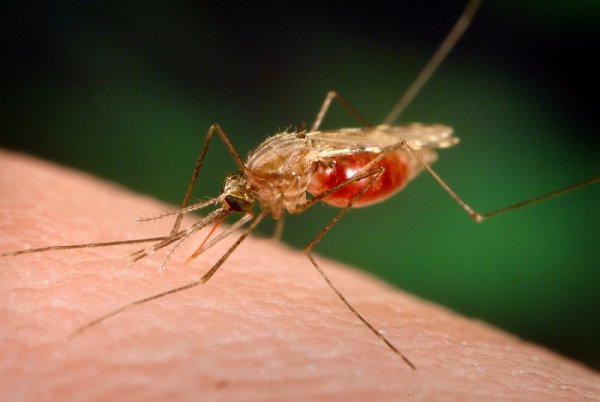WHO releases World Malaria Report 2014

Over the past decade, the global health community has made huge gains in the battle against malaria. It is estimated that between 2001 and 2013, 4.3 million deaths have been averted, 3.9 million of which were children under the age of five in sub-Saharan Africa. This is largely thanks to the increased commitment and investment in prevention and treatment measures such as insecticide-treated bed nets and the availability of the highly successful antimalarial medicines Artemisinin Combination Therapies (ACTs).
Today (09 Dec) heralds the release of the 2014 WHO World Malaria Report at Westminster in London, UK. The report provides us with a comprehensive overview of how the public health community is combatting this deadly disease. It summarises data received from malaria-endemic countries and presents the latest global mortality and morbity estimates.
According to the WHO report, 528,000 people in Africa died from malaria in 2013, a 54 per cent drop in mortality since 2000. 49 per cent of people at risk of malaria in sub-Saharan Africa now have access to mosquito nets. 64 countries are on track to meet the Millennium Development Goal (MDG) target of reversing the incidence of malaria by the end of 2015.
WHO Director General Dr Margaret Chan told the BBC, “These tremendous achievements are the result of improved tools, increased political commitment, the burgeoning of regional initiatives, and a major increase in international and domestic financing. We must not be complacent. Most malaria-endemic countries are still far from achieving universal coverage with life-saving malaria interventions."
The report also includes the potential threats against the recent gains in malaria control. Vulnerable groups such as pregnant women and young children are often not receiving adequate treatment and care needed in malaria endemic countries. The report found that 70 per cent of malaria patients could be treated but not all sick children are taken to a clinic, and 43 per cent of pregnant women do not receive any preventative medicine.
There are fears that the Ebola crisis in West Africa will cause some set-backs in the fight against malaria. To minimise the effects, the WHO has issued new guidance on temporary measures to control the disease during the Ebola outbreak: to provide ACTs to all fever patients, even when they have not been tested for malaria, and to carry out mass drug administration with ACT antimalarials in areas heavily affected by the Ebola virus and where malaria transmission rates are high.
Pedro Alonso, Director of the Global Malaria Programme at the WHO, highlighted during the WHO report launch the need to move away from vertical public health approaches, focusing on a single disease such as Ebola, and instead move toward supporting an entire health system by strengthening capacity and surveillance systems to support multiple diseases.
In addition to the impact of Ebola, resistance to artemisinin, the current frontline treatment against malaria, is now firmly established in many parts of Southeast Asia and there are signs that it is emerging in countries such as Myanmar. Insufficient data on malaria transmission and emergence coupled with weak surveillance systems will continue to hamper efforts to reduce the disease burden unless we respond rapidly to the information gaps.
The gains the global health community have made against malaria over the past decade are fragile and are at risk of being unravelled. It is essential that the malaria research and health community continue to work together to overcome these potential threats and bring us ever closer to eliminating and eventually eradicating malaria once and for all.
Read the summary and full WHO World Malaria Report 2014 in English, French and Spanish.
